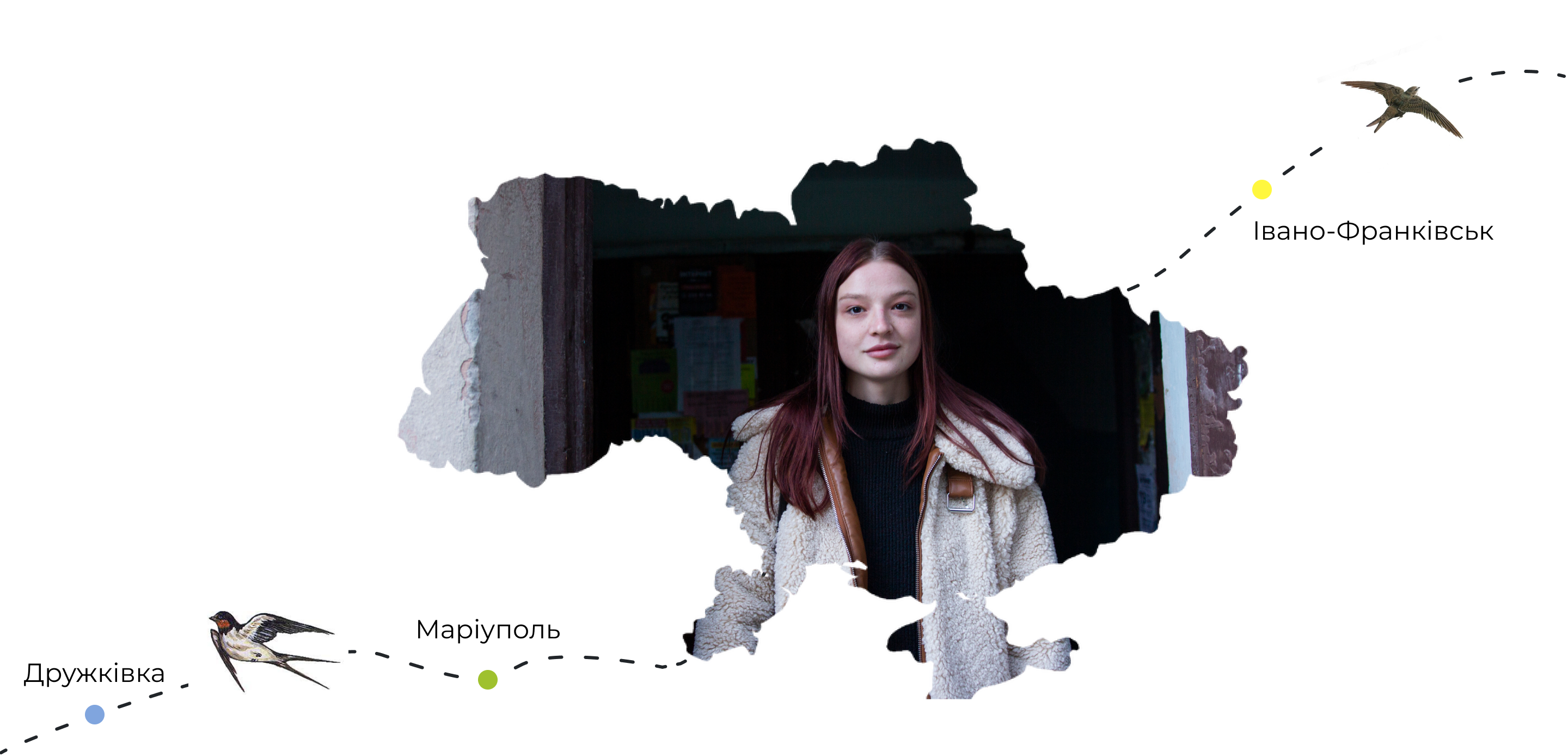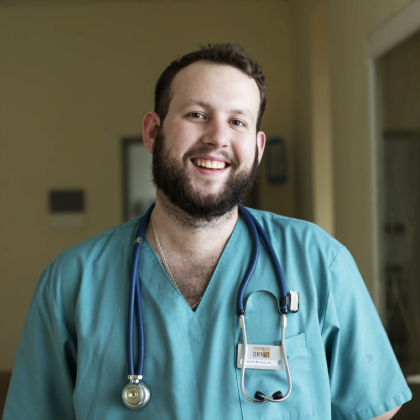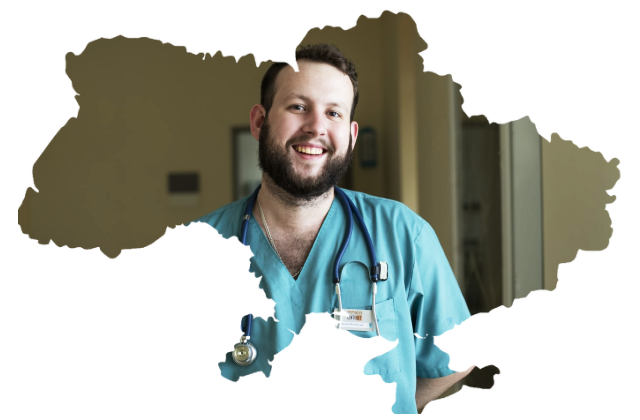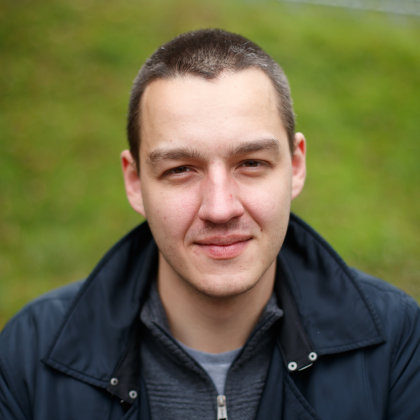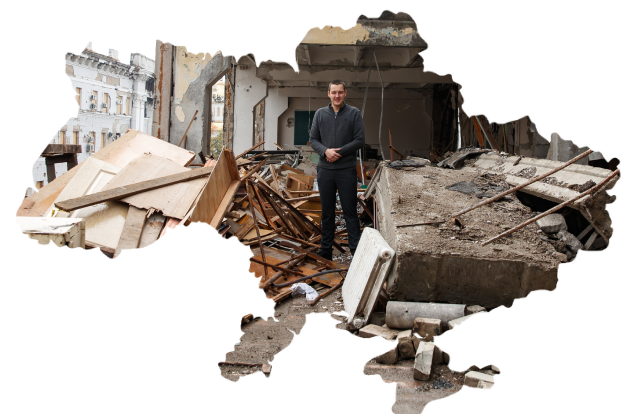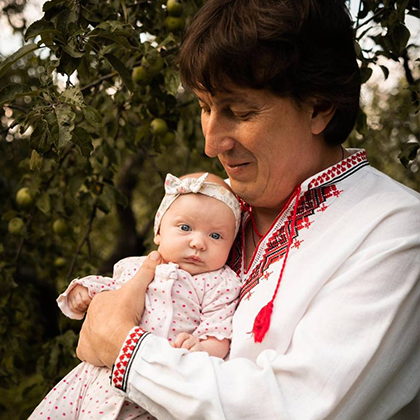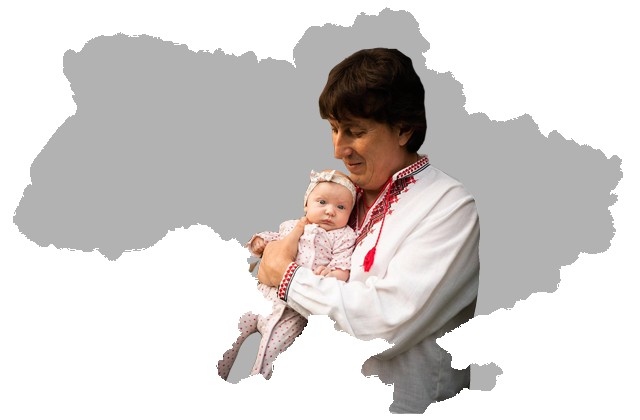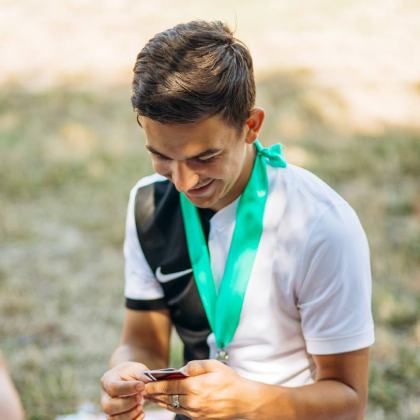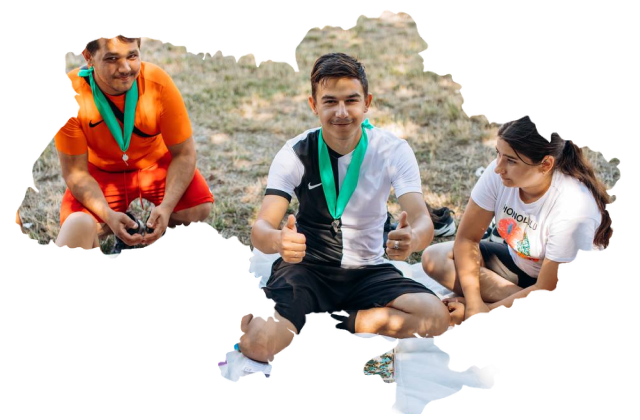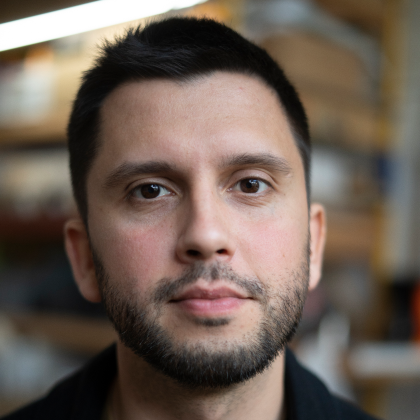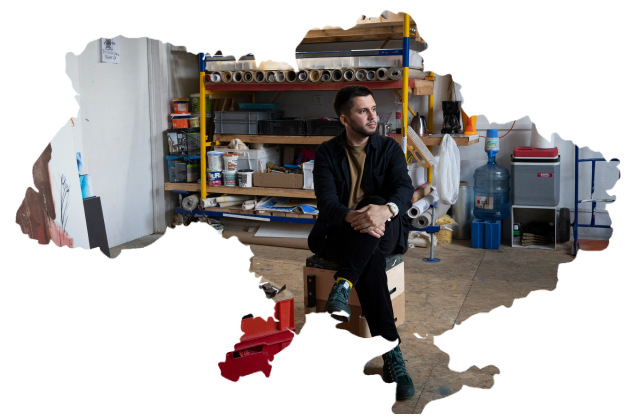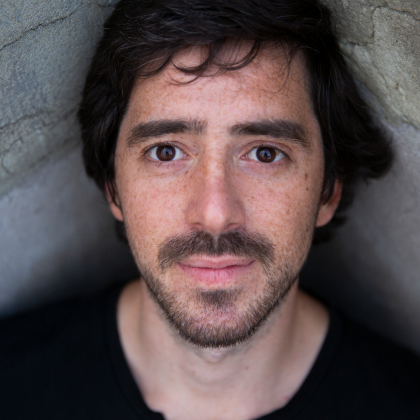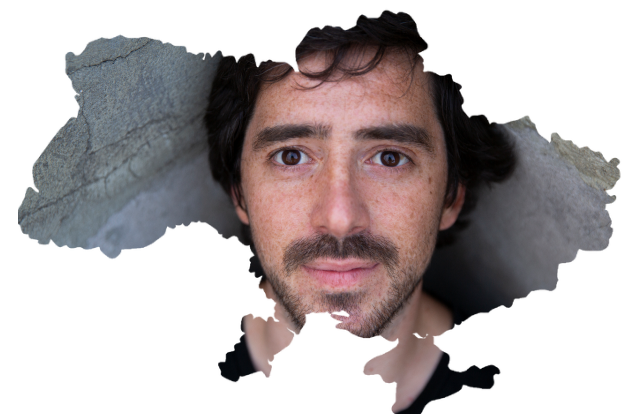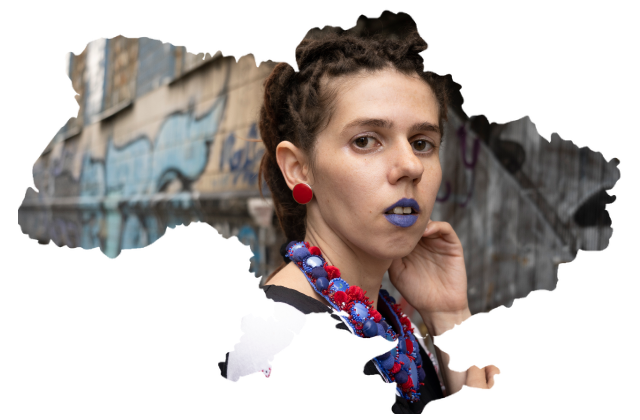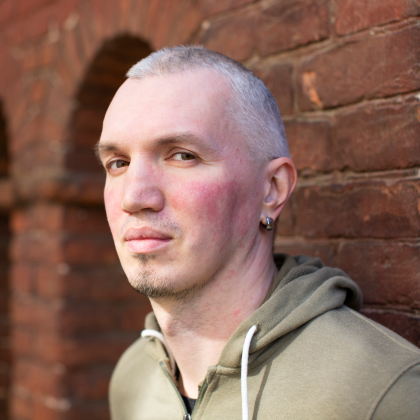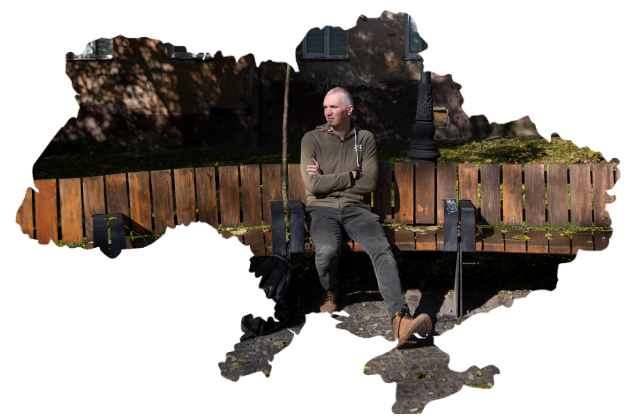Daria Zarovna
DJ
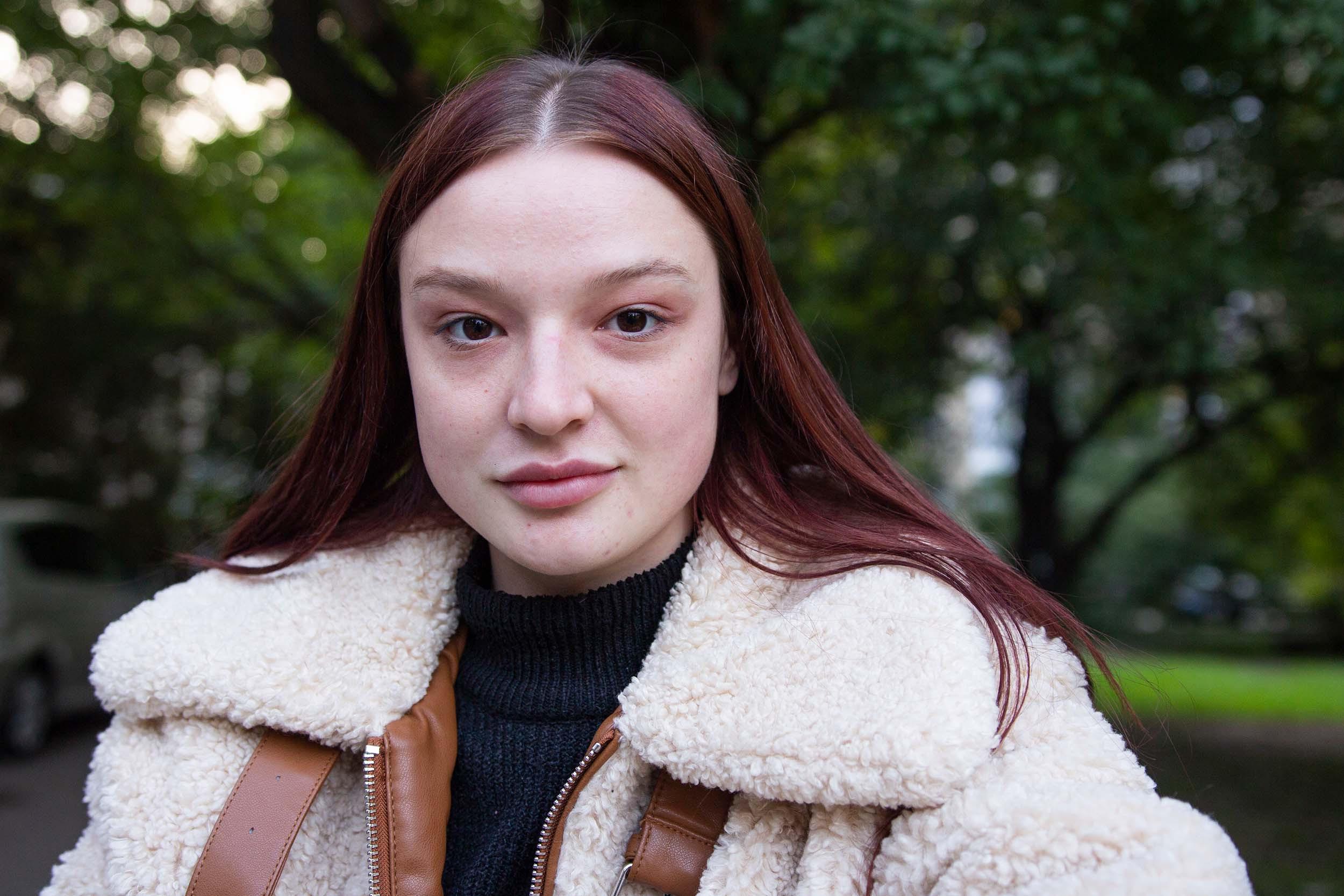
Druzhkivka — Mariupol — Ivano-Frankivsk
I was born in Druzhkivka, Donetsk region, and lived there for 15 years. I have very warm feelings for this city. Not even because of how long I lived there, but because I love it very much. Druzhkivka is small, everyone knows me, and every piece of town is familiar to me. I miss home very much.
But now I think that I have two hometowns — Druzhkivka and Mariupol.
Before I moved to Mariupol I studied DJing in Kharkiv for three months, and then I lived and worked in Druzhkivka and Odesa for about half a year. In summer 2020 I came to play in Mariupol and I was invited again in autumn. And in November I was in Kyiv, and Zhenia Skripnik [organizer of raves in the Donetsk region, founder of Shum.Rave] asked, "Where should I get the return tickets for you?"
I didn't want to live in Odesa anymore or go back to Druzhkivka. I wrote to my acquaintances from Mariupol, "I'll come for two days to drink beer by the sea, okay?” They answered, "Sure, come over, why not?” And in two days I brought my cat and belongings from Odesa and moved to Mariupol. Since then I planned to live there permanently. I dreamed that in the summer all the Shum.rave residents would come to visit me and we would go to the sea together.
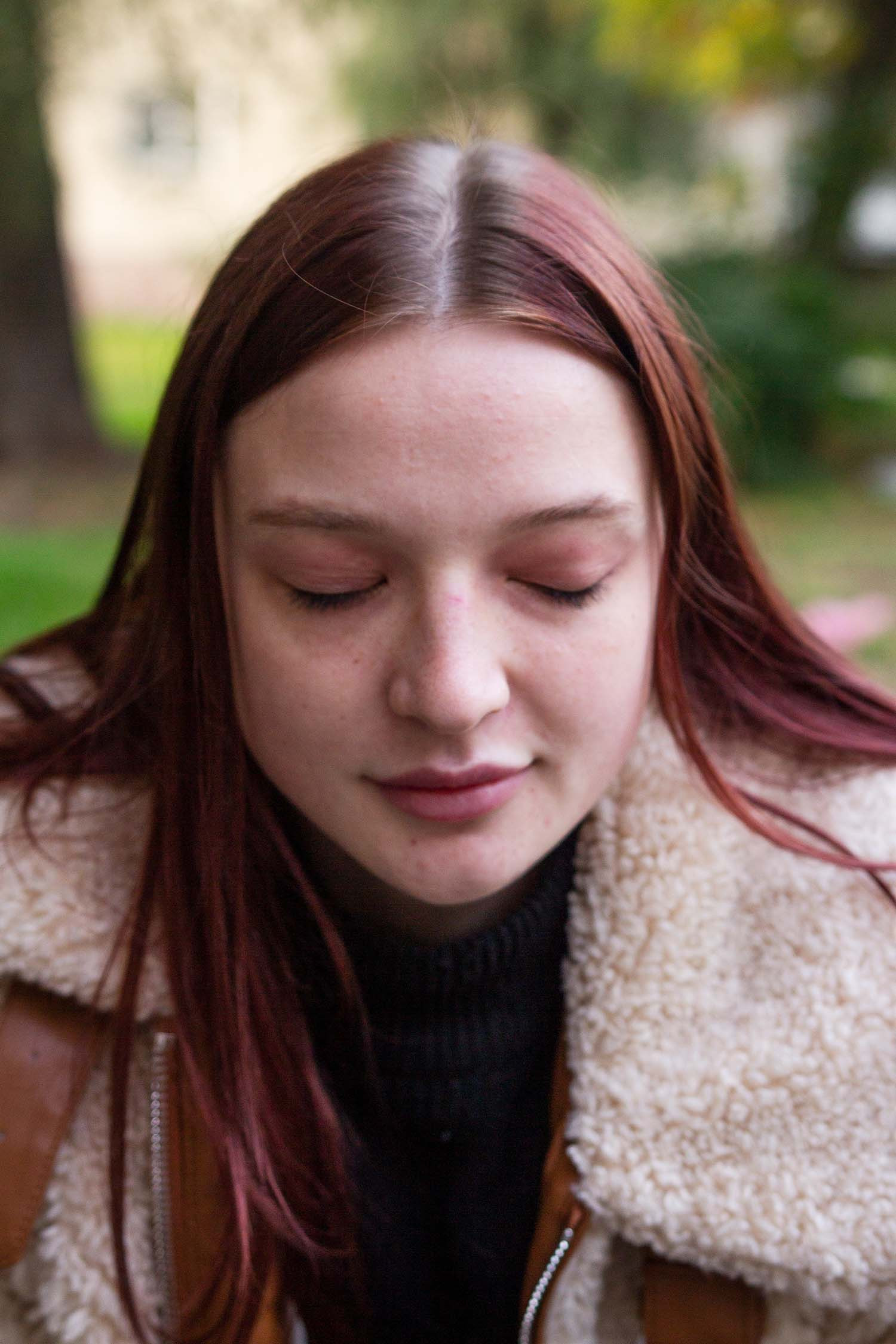
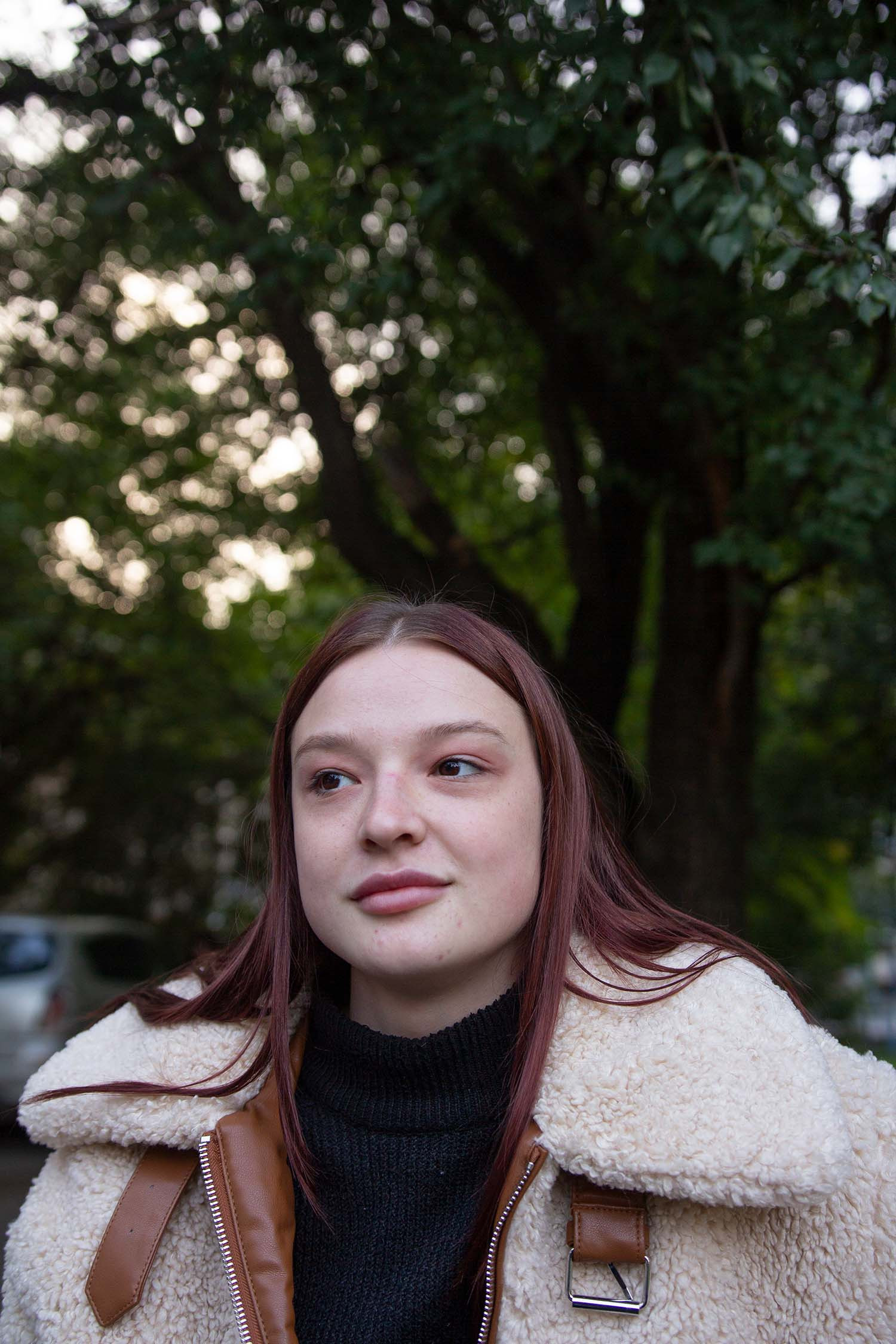
To be honest, I didn't believe there would be a full-scale war. Many friends told me that something would happen, and I answered, "If anything happens where you are, come to Mariupol, I have a three-room apartment, and I can accommodate everyone.”
On February 24, at almost seven in the morning, a friend called me, "Dasha, wake up, the war has started.” I said, "Zhenia, I'm sleeping, why are you calling so early? That's all, thank you, bye." I hung up the phone, came back, and told my boyfriend, "Zhenia called, and said a war had started." He was like, "Yeah, we gotta get up." And I was like, "What do you mean, get up? I'm going back to sleep, I have to work today!"
I didn't get any sleep, because five minutes later I heard the first explosion nearby. But I didn't really know what was going on yet: we lived by the port, and there was always something rumbling. But this time it wasn't from the port.
At first, I thought it would last two or three days. But then I started looking for tickets to Druzhkivka or Ivano-Frankivsk because my boyfriend's mom lives there. And I couldn't find one in either direction. We didn't use the evacuation train because we have a cat Lapsha and a labrador Nicholas, and there were a lot of people on the trains, and it could have physically injured the animals.
Around March 1, the lights were out, and on March 3, the gas was cut off. We tried to evacuate, but we were turned back, we were told that there was fighting outside the city. We didn't even make it to any of the checkpoints, people were telling each other: "They won't let us out, they won't let us out.”
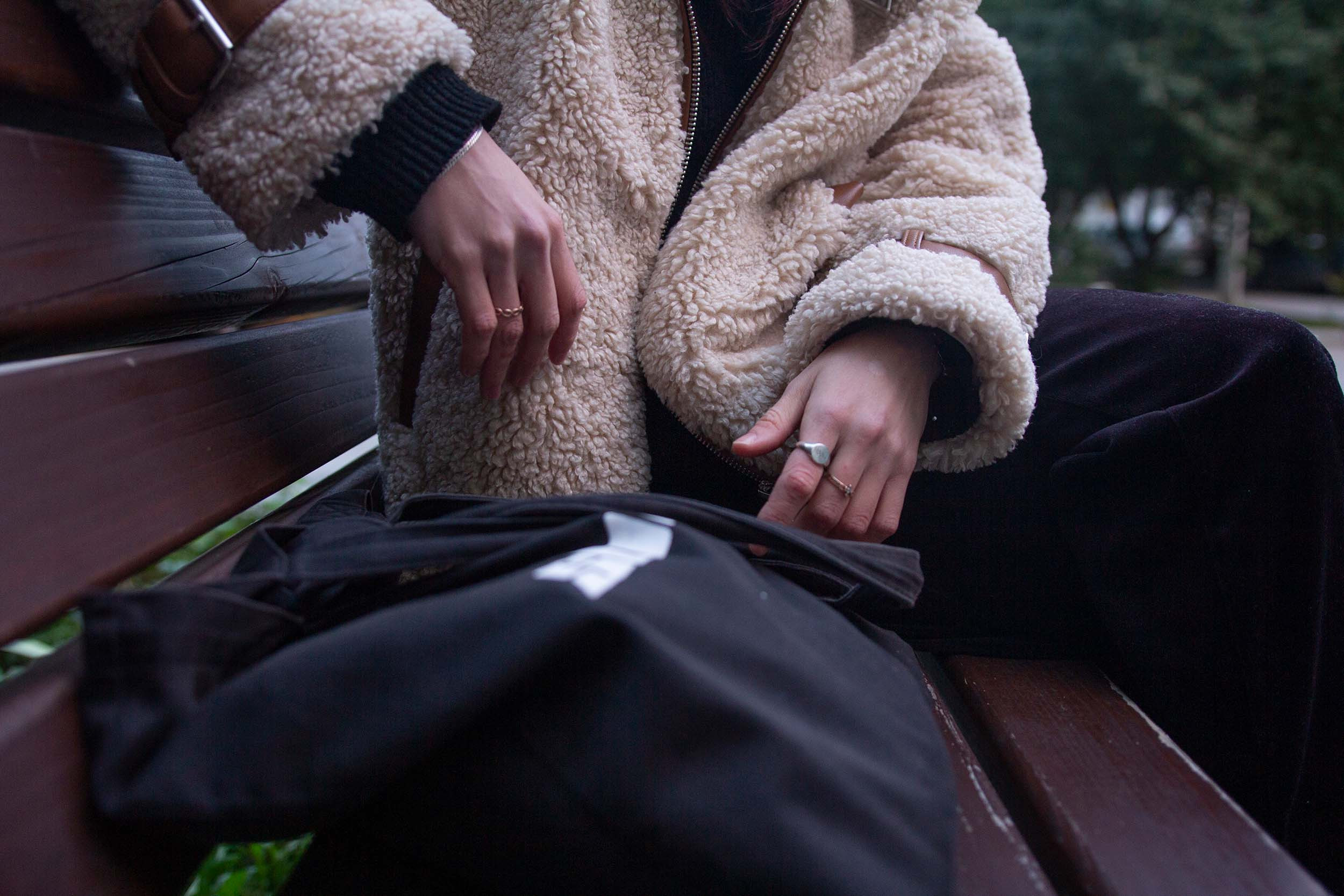
We realized that we couldn't go back to our apartment, because there was no water, gas, or light, and it was dangerous to be on the ninth floor. We moved to the outskirts of the city, to an acquaintance's apartment on the second floor.
The next day we went out to bring groceries and baby formula to friends who had a small child. While we were walking, something flew into the ATB and ricocheted off into the house we were sleeping in, two floors above our flat. The house caught fire, and there was no way to put it out: for example, the house across the street at the time had already been aflame for two days, burning up and smouldering again.
We took some things and moved to an apartment on the first floor, which had a basement. We lived there until March 10 or so, even though the houses were shelled heavily at that time. We realized we had to look for something new.
An acquaintance of ours went to see her daughter in a bomb shelter and told us that the city centre was intact. I think it was March 10, but it's hard to give the dates because the phone was dead by then. We decided we would go there the next day because the curfew had already started. The next day we arrived in the morning and the centre was gone. There was glass everywhere, the hospital was ruined, and it was impossible to drive there. So we moved in with my boyfriend's relatives, in the apartment in the house next door.
Around March 16-17, we noticed groups of five cars driving past us. The house we lived in was located in such a way that you realized, that people were not going for groceries, most likely they were leaving the city. We were running out of food, we had to do something. After half an hour we packed everything we could fit in the car and left.
There were no green corridors, we were just like, "Well, let's either drive away or what else do we do?" The drive was stressful: we drove around all kinds of mines, worried about the fact that the lying glass could pierce the wheels, but we managed to get away nevertheless. We got to Melekine, which is about 25 kilometres from Mariupol, and we stayed there for about two days, trying to make a plan of what to do next.
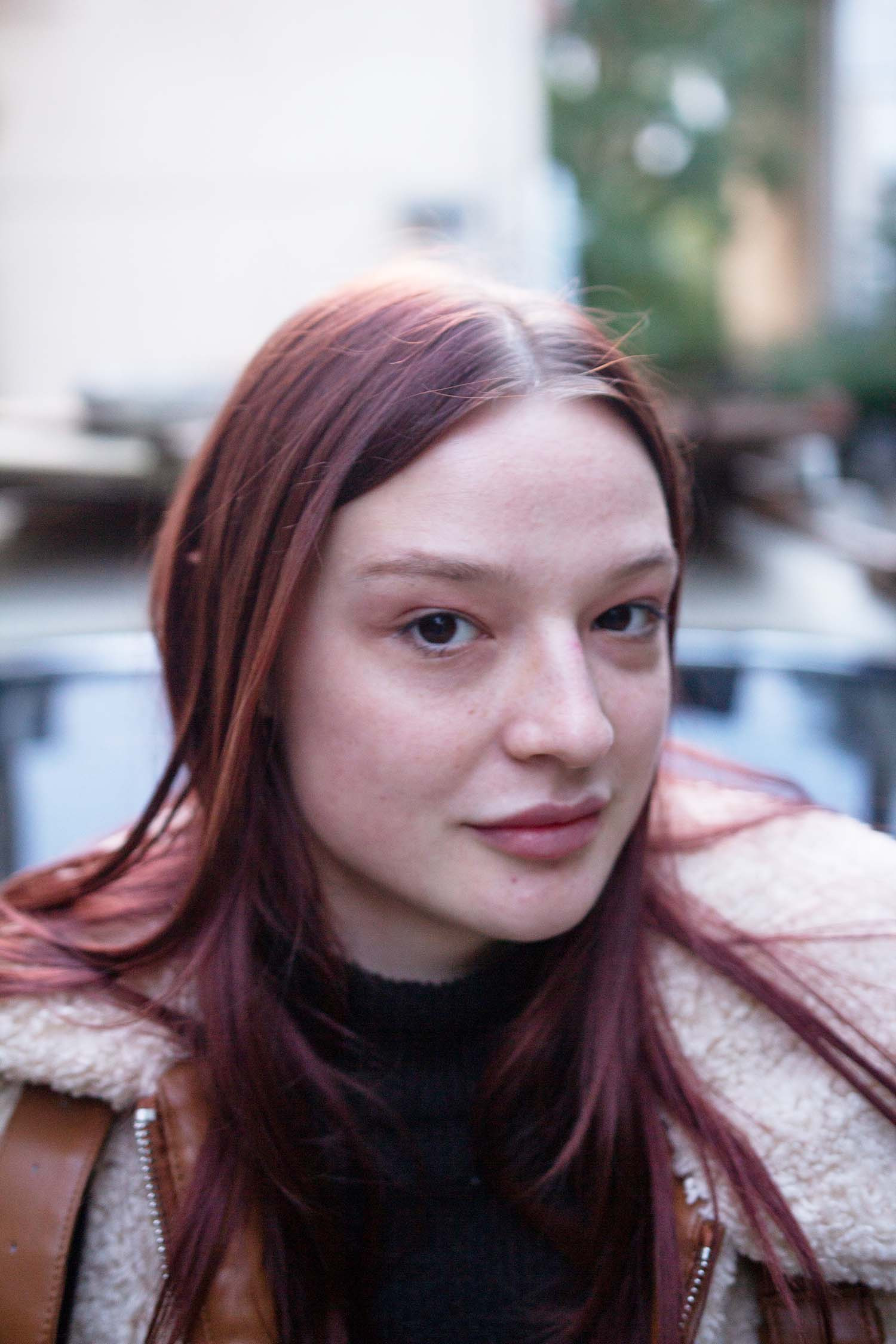
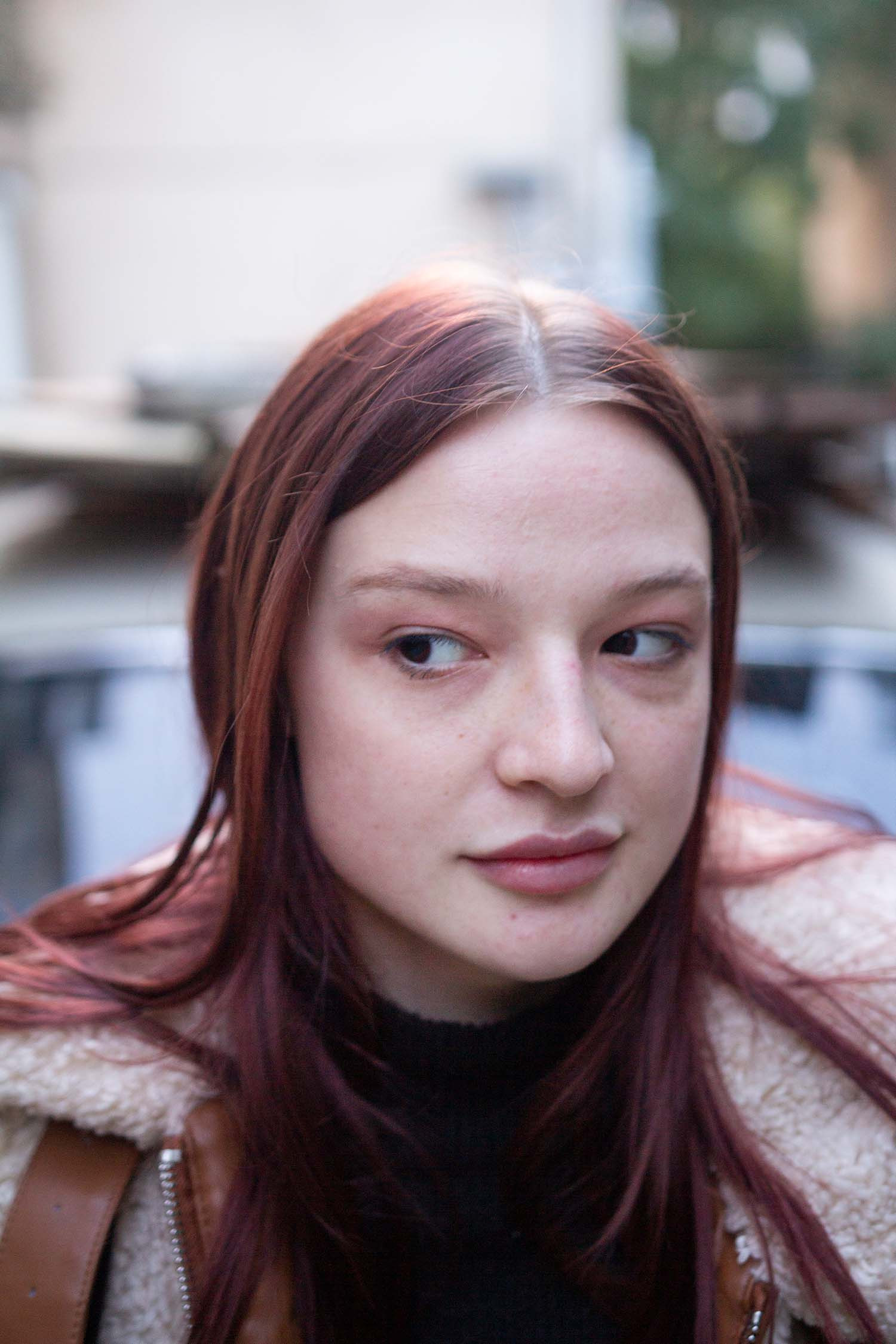
We tried to get to Berdiansk, but there was a huge line of cars, and we ran out of fuel. And the people we turned to from a nearby village said, "You can come to our place, spend the night, and then you'll figure it out.” I'm very grateful to these people, they took such good care of us — they fed us, allowed us to wash up, and gave us a place to stay for the night.
We stayed in this village in the Zaporizhzhia region for about two weeks, because we could only leave if we paid in cash, which we didn't have. At some point, mobile communication became available, and we started looking for people who could help to move away. But as soon as we started arranging it, the connection was cut off altogether. And again we had to drive without clear directions.
Then we made it to Berdiansk and immediately, on the first day, tried to leave in the direction of Zaporizhzhia, but we were turned back, not even allowed on the buses, because there was heavy shelling of Tokmak, Orikhiv — places in the Zaporizhzhia region.
The next day there was a bus, and we managed to get to those checkpoints after all. It took us nine to ten hours to get through, and then I found out that it was still a short time: there were people who had been standing there for three days straight. And the distance between Zaporizhzhia and Berdiansk is only two hundred kilometres.
In Zaporizhzhia, we were met by volunteers, who gave us food, offered food for the pets, and placed us in a kindergarten for one night. There they also gave us food, I would even say — fed us. I am very grateful to the kindergarten "Fialka" — these are incredibly good people. Then we took the evacuation train to Ivano-Frankivsk.
Frankivsk is very beautiful, clean, and small. I love small towns, where you can get where you need to be in 20 minutes on foot. And people here are interesting, kind, responsive, many helped us. But it doesn't evoke feelings yet. Maybe because I have feelings for my other two cities. Or because the overall state is such that you somehow... react less emotionally to some of the things that used to make you happy. You feel either acute pain or repressed, background pain. I think because of the realization that everything you used to hold dear — even the bench by your house — is gone.
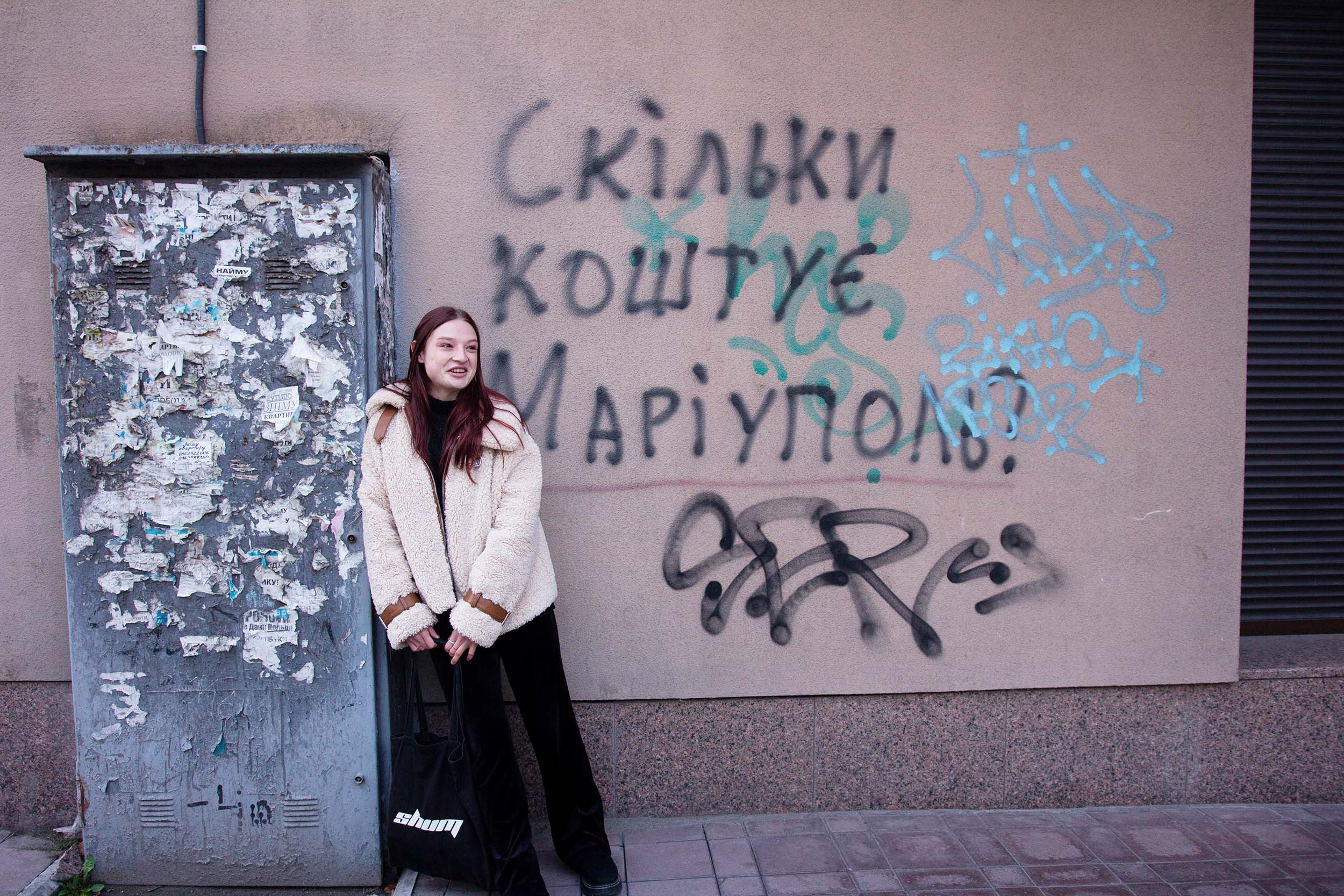
Almost everything in Mariupol is linked to me by some stories. On this street we used to walk our dog all the time, our friends lived in that house... In winter I just started teaching at the dance studio. And a week before the full-scale invasion I came up with new choreography there, after training the girls and I were lying there exhausted. It was painful to see that studio ruined.
Some might say, "You've only lived in Mariupol for two years!” But I intensely felt this city, I fell in love with it, it moved me. I got to know interesting and creative people there who are doing important things: Diana Berg and the whole team of the TU Platform [a cultural space in Mariupol that now collects memories of the city and helps surviving residents], musicians, and DJs with lots of experience.
I want to go back to Mariupol and want to live there again. On the one hand, I understand that when it is once again Ukrainian, it will really be rebuilt. I'm exactly the kind of person who writes in the comments that everything will be rebuilt. On the other hand, I would like it to happen as if by magic. But I understand that it doesn't happen that way and that by the time Ukraine rebuilds Mariupol, I will probably be pretty mature. I know it will happen, the only question is when.
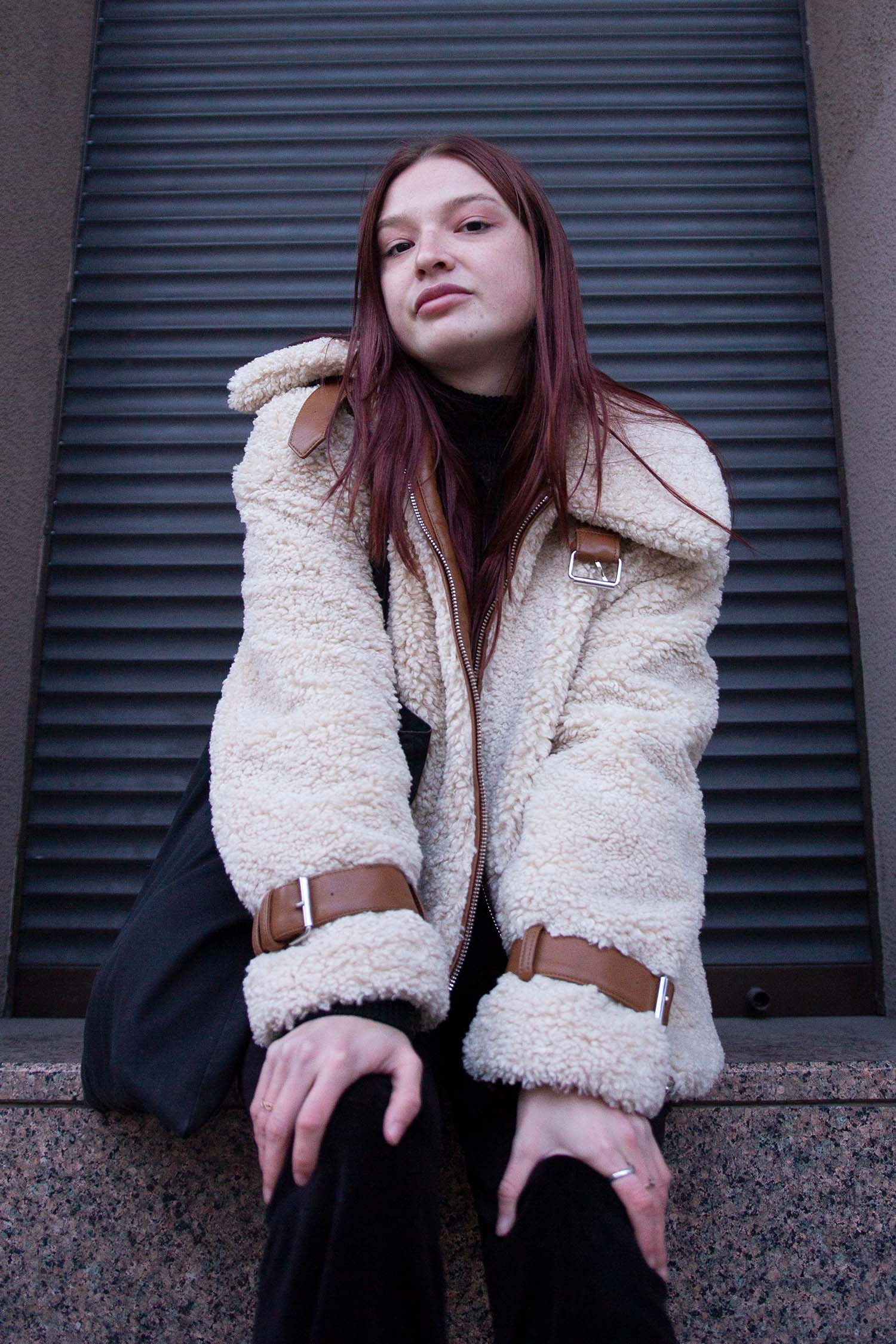
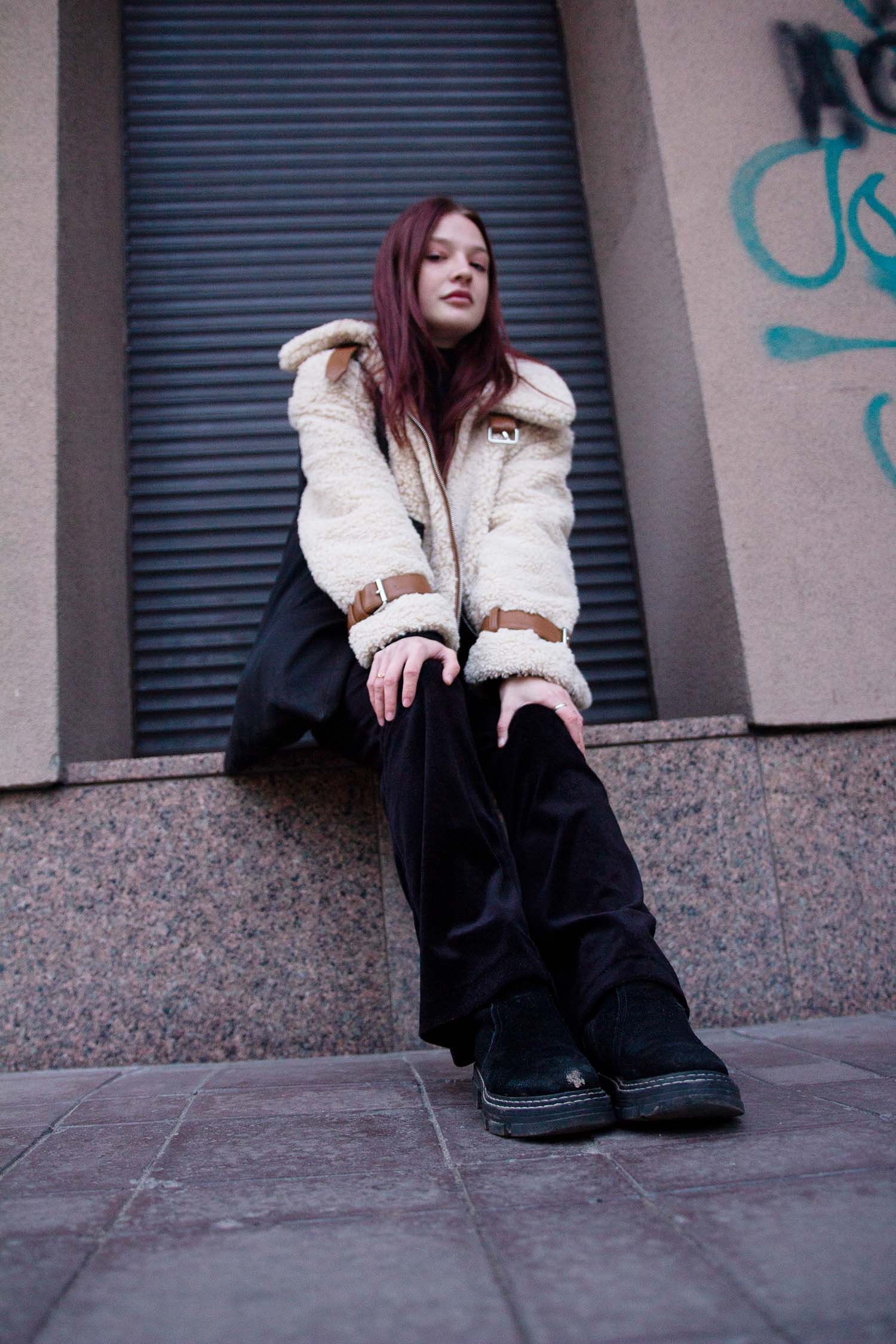
Recorded by Olha Vasina
Translated by Katsiaryna Khinevich
Photographed by Vladislav Yevdokymov
